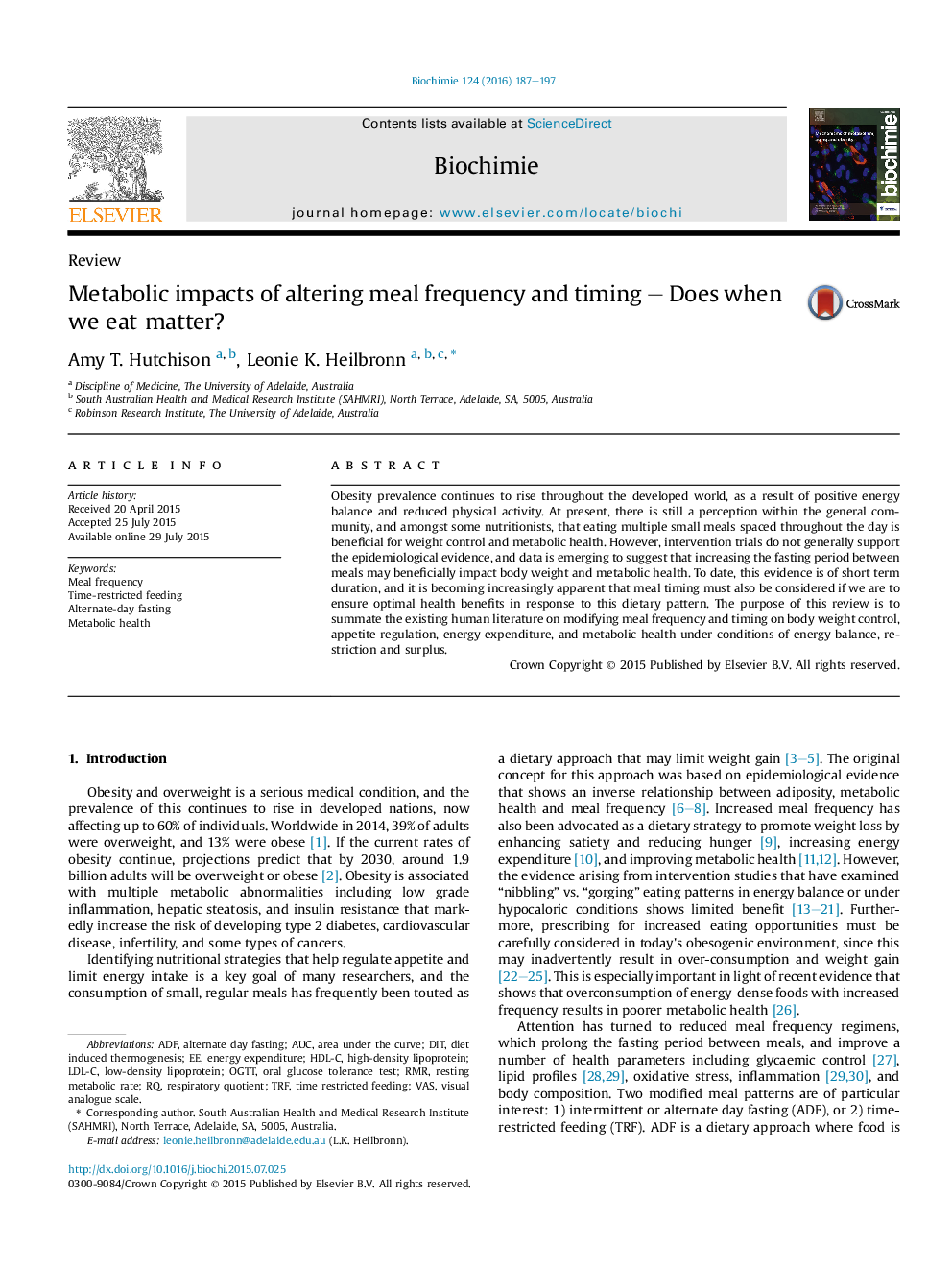| کد مقاله | کد نشریه | سال انتشار | مقاله انگلیسی | نسخه تمام متن |
|---|---|---|---|---|
| 1951960 | 1538407 | 2016 | 11 صفحه PDF | دانلود رایگان |
• We review the evidence for modified meal frequency and timing on metabolic health parameters.
• Emerging evidence suggests reduced meal frequency (<3 meals/d) is beneficial for health.
• We examine time-restricted feeding and alternate-day fasting as alternative approaches to limit weight gain and improve metabolic health.
• We consider the importance of circadian rhythms in the context of meal patterning.
Obesity prevalence continues to rise throughout the developed world, as a result of positive energy balance and reduced physical activity. At present, there is still a perception within the general community, and amongst some nutritionists, that eating multiple small meals spaced throughout the day is beneficial for weight control and metabolic health. However, intervention trials do not generally support the epidemiological evidence, and data is emerging to suggest that increasing the fasting period between meals may beneficially impact body weight and metabolic health. To date, this evidence is of short term duration, and it is becoming increasingly apparent that meal timing must also be considered if we are to ensure optimal health benefits in response to this dietary pattern. The purpose of this review is to summate the existing human literature on modifying meal frequency and timing on body weight control, appetite regulation, energy expenditure, and metabolic health under conditions of energy balance, restriction and surplus.
Journal: Biochimie - Volume 124, May 2016, Pages 187–197
